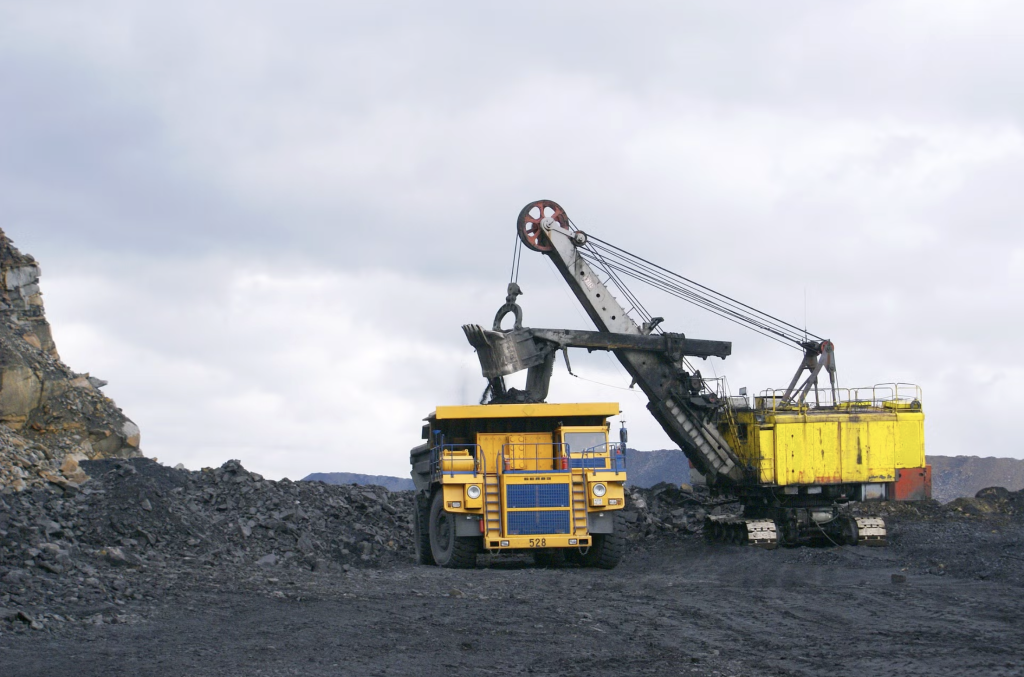Glencore Explores Sale of Stake in Major Congolese Copper Mine
Glencore PLC, the Swiss-based commodities giant, has been holding discussions regarding the potential sale of a controlling stake in its flagship Kamoto Copper Company (KCC) mine in the Democratic Republic of Congo, marking a significant shift in strategy for the company.
The KCC operation, one of the world’s largest combined copper and cobalt producers, has long been considered a cornerstone of Glencore’s African portfol
...
Glencore Explores Sale of Stake in Major Congolese Copper Mine
Glencore PLC, the Swiss-based commodities giant, has been holding discussions regarding the potential sale of a controlling stake in its flagship Kamoto Copper Company (KCC) mine in the Democratic Republic of Congo, marking a significant shift in strategy for the company.
The KCC operation, one of the world’s largest combined copper and cobalt producers, has long been considered a cornerstone of Glencore’s African portfolio. In 2024, the mine produced 191,000 tons of copper and 27,000 tons of cobalt. Despite these substantial output figures, KCC has faced persistent operational challenges, suffered from falling cobalt prices, and been embroiled in a protracted dispute with Congolese authorities over billions in royalties and taxes.
While Glencore has not initiated a formal sales process, sources familiar with the matter indicate the company has signaled to potential buyers, including mining heavyweight Rio Tinto Group, that it is open to divesting a controlling interest in the operation. Glencore previously rejected an unsolicited bid from New York-based Orion Resource Partners, which was working in partnership with Abu Dhabi’s sovereign wealth fund ADQ. However, discussions with Orion and other potential buyers have reportedly intensified in recent months.
The potential divestment is unfolding against a complex geopolitical backdrop. The United States has been negotiating with the DRC to establish a minerals and infrastructure partnership, reflecting Washington’s growing concern about China’s dominance in critical mineral supply chains. Copper and cobalt, both abundant in the DRC, are essential components in defense technology, renewable energy infrastructure, and electric vehicle batteries.
The U.S. International Development Finance Corporation (DFC) is reportedly in talks to create a mining investment fund with Orion, and sources indicate this partnership could potentially participate in a KCC acquisition. While a State Department official declined to comment on specific transactions, they emphasized Washington’s commitment to encouraging U.S. investment in Congo and strengthening cooperation with African partners in the critical minerals sector.
The DRC’s strategic importance in global mineral markets cannot be overstated. The Central African nation is the world’s second-largest copper source and accounts for approximately 75% of global cobalt production. Currently, Glencore remains the only major Western company with substantial cobalt operations in the country, while Chinese firms and Kazakhstan’s Eurasian Resources Group dominate the rest of the industry.
For Glencore, the timing of exploring options for KCC coincides with growing investor frustration over the company’s performance. KCC has consistently failed to reach its full production potential, while Glencore’s overall copper output has been declining. The company has also seen its coal revenues fall and struggled with a crisis in metals processing and refining, contributing to a nearly 20% drop in its share price over the past year.
Glencore currently holds a 70% stake in KCC, with the remainder belonging to Congo’s state-owned mining company Gecamines and the Congolese government.
Complicating any potential sale is a contentious royalty arrangement involving sanctioned Israeli businessman Dan Gertler. Gertler is entitled to a 2.5% royalty on KCC’s net revenues, as well as payments from other mining operations in the country. The U.S. Treasury sanctioned Gertler in 2017, alleging he accumulated wealth through opaque and corrupt mining and oil deals—charges he denies.
Western investors have been hesitant to commit capital to Congolese projects partly due to the risk of indirectly engaging with a sanctioned individual. Several options to resolve this issue are reportedly under discussion, including a lump-sum buyout of Gertler’s royalties, transferring them back to Gecamines, or structuring a deal where Glencore retains enough ownership to continue handling the royalty payments without involving new buyers.
Sources indicate Gertler has shown willingness to divest his Congolese royalties, participate in an audit, and accept certain conditions that could potentially lead to sanctions relief. The value of his royalties could amount to hundreds of millions of dollars.
Despite the ongoing discussions, people close to the negotiations caution that there is no guarantee a deal will materialize. The outcome will likely depend not only on price but also on resolving longstanding disputes with the Congolese government and addressing the sanctions-related complications that have made Western investment in the region particularly challenging.


